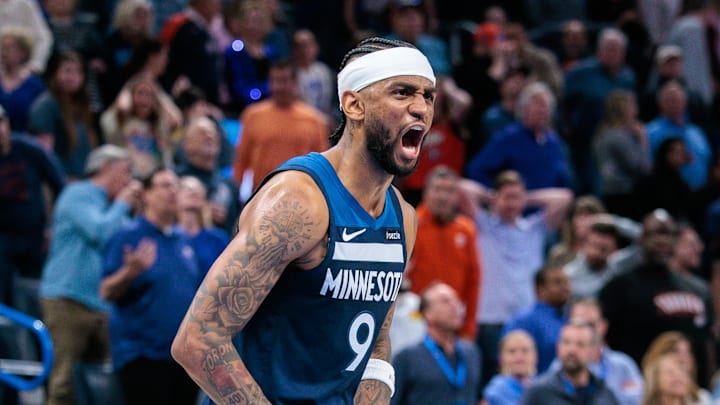The Atlanta Hawks made waves this offseason by signing Nickeil Alexander-Walker, perhaps the best free agent to switch teams this year, to a three-year contract.
Alexander-Walker is an elite defender who fits seamlessly next to Atlanta's backcourt core of Trae Young and Dyson Daniels. While Daniels is the best defender in the league, Alexander-Walker has two elite defensive strengths that outshine Daniels. Alexander-Walker finished in the 99th percentile of Basketball Index’s ball screen navigation stat and 98th percentile in offensive fouls drawn.
These traits, particularly his ball screen navigation, will be crucial for the Hawks entering next season. The team had a concerning lack of backcourt defense last season, exclusively relying on Daniels on that end. With the addition of Alexander-Walker, however, Atlanta will always have an elite defender on the floor and the option to have both players on the floor against the elite perimeter rotations of the NBA.
Alexander-Walker's profile as a player fits Atlanta's needs perfectly
The most important skill Alexander Walker brings to the table is his screen navigation. With Young and Luke Kennard on the roster, Atlanta will always have a weak defender on the floor.
It’s no secret that weak defenders get attacked in the NBA. The bread and butter of the modern playoff offense involves repeatedly involving the opponents' worst defender in screens, with the hope of creating mismatches and easy scoring opportunities.
Alexander-Walker's screen navigation will prove extremely valuable in the playoffs for a Young-led team. With Alexander-Walker's screen navigation and Daniels' hounding on-ball defense, the Hawks will be able to adapt to anything an offense throws at them.
The pairing of Dyson Daniels and Alexander Walker is what makes the acquisition of Alexander-Walker so impactful to the Hawks. While both players are excellent defenders, they approach defense in distinct ways.
Alexander-Walker's quickness and elusiveness make him a pest on screens, following his assignment effortlessly. On the other hand, Daniels is much bigger and more physical than Alexander-Walker. He prefers to use his defensive instincts and strength to wall off the paint and bump ball handlers approaching a screen.
This stylistic difference is most apparent in Alexander-Walker's offensive foul-drawing ability. Where the bigger Daniels would use his frame to stand his ground, Alexander-Walker opts to embrace the contact, falling to the ground and drawing a charge. Both approaches are options a defense needs in its arsenal.
The Alexander-Walker signing was a home run for the Hawks, who now have the perfect pair of backcourt defenders to support Trae Young. While the signing wasn't flashy, it brought defensive versatility to Atlanta that will be critical for a playoff run.
